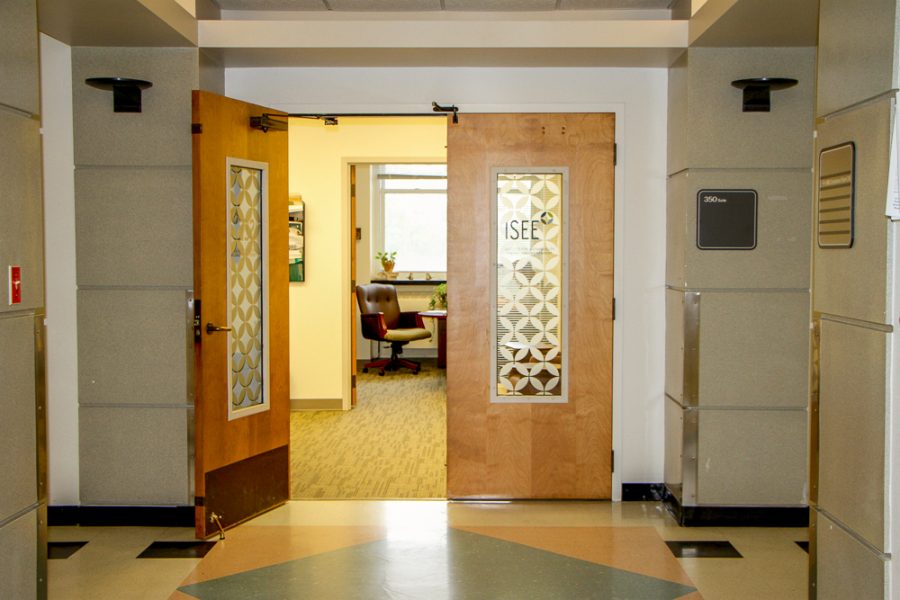iSEE to open “living labs” for sustainability research
ISEE is located in the National Soyabean Research Laboratory, in Suite 350.
Mar 12, 2018
The Institute for Sustainability, Energy, and Environment (iSEE) is looking to create more “living laboratories” for sustainability on campus through its new seed funding program for the Institute for Sustainability, Energy and Environment.
Ximing Cai, associate director for Campus Sustainability and professor in Engineering, said the idea of the living laboratories is for student and faculty researchers to use campus and the community as a test bed for research and education.
The project was announced last fall, but Cai officially launched it in February.
It will allow faculties and researchers to leverage the existing sustainability programs from the Illinois Climate Action Plan, a plan to achieve carbon neutrality on campus.
“We’ve done hundreds of sustainability projects already, and all of them are online. But I don’t think many of our faculty members know that,” Cai said.
Get The Daily Illini in your inbox!
The seed funding project will make more than 700 iCAP programs available to faculty members, Cai said, in the hopes they can provide researchers with more research background and help them to write more competitive proposals for external funding.
Madu Khanna, associate director of the Institute for Sustainability, Energy and Environment, said she had high expectations for the seed funding program.
“It’s something we’ve been doing for a long time, and it’s a strategy proved to be very successful,” Khanna said.
Successful examples of seed funding programs include the Energy Farm, which turned out to be a national-scale program with federal funding as well as corporate funding, Khanna said.
“The new thing about the program (of iSEE) is that it’s not just seed funding, but seed funding using campus as living laboratories,” Khanna said. “The main idea of ‘living biolaboratories’ is that we would use research done on campus to improve our models and data.”
Cai said the project plans to accept 10 applications each year, and the first review session of the applicants will be hosted on Tuesday in conjunction with iCAP directors.
ISEE could provide up to $30,000 in seed funding if the proposal addresses how they would use the project as a test bed for educational or research purposes.
According to the seed funding program requirements, researchers must tie their proposals to existing campus sustainability project(s) and to external funding no less than $1 million.
Cai said the project can be seen as an effort to help develop the campus as a prevalent sustainability community and to try out promising solutions for sustainability development in the world.
“This is going to help everyone. It would help faculties and researchers for their proposal preparation,” Cai said. “It would also help bring students into research programs when researchers get their external funding.”






